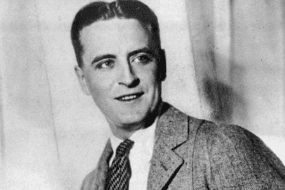
Burger King Corporation (BK) stands as an iconic American multinational chain of fast-food restaurants, known worldwide for its signature Whopper burger and diverse menu offerings. Founded in 1953 as Insta-Burger King in Jacksonville, Florida, the company underwent several transformations before establishing its dominance in the fast-food industry. With a rich history spanning over seven decades, Burger King has experienced numerous ups and downs, evolving its menu, advertising strategies, and ownership structure to adapt to changing consumer preferences and market dynamics. In this article, we delve into the net worth of Burger King, exploring its financial journey, achievements, challenges, and notable contributions to the culinary landscape.
Burger King is amongst the most valuable quick service brands in the world, with a value of over seven billion U.S dollars .
Early Life
Burger King’s journey traces back to its humble beginnings in Florida, where the concept of fast-food dining was still in its infancy. Founded by Keith J. Kramer and Matthew Burns as Insta-Burger King, the company initially experimented with innovative cooking technology, including the revolutionary Insta-Broiler oven. Despite early promise, financial difficulties plagued the business, leading to its acquisition by Miami-based franchisees David Edgerton and James McLamore in 1959. Under new ownership, the company underwent a rebranding as Burger King and embarked on a journey to redefine the fast-food experience.
Career Breakdown
Rise to Fame
Burger King’s rise to fame can be attributed to its relentless pursuit of innovation and customer satisfaction. Throughout the 1960s and 1970s, the company expanded rapidly, introducing iconic menu items such as the Whopper burger and establishing its presence in international markets. The 1970s marked the “Golden Age” of Burger King’s advertising, capturing the hearts of consumers with memorable campaigns and distinctive branding.
Major Works
As Burger King continued to grow, it solidified its position as a major player in the fast-food industry. The introduction of new menu offerings and strategic partnerships, such as the merger with Tim Hortons under Restaurant Brands International, propelled the company to new heights. Despite facing challenges and undergoing ownership changes, Burger King remained committed to delivering quality food and innovative dining experiences to its customers.
Awards and Honors
Over the years, Burger King has received numerous accolades and awards for its contributions to the culinary world and business excellence. From industry recognition for its advertising campaigns to prestigious honors for corporate citizenship and sustainability initiatives, the company’s achievements reflect its commitment to excellence and innovation.
Net Worth Analysis
Earnings
Burger King’s net worth is a testament to its success as a global brand and leader in the fast-food industry. With revenue streams from franchise fees, property rental, and sales through company-owned restaurants, the company generates substantial earnings year after year. Strategic initiatives, such as menu diversification and international expansion, contribute to its robust financial performance.
Real Estate
In addition to its operational revenue, Burger King maintains a significant real estate portfolio, including corporate-owned restaurants and investment properties. These assets add value to the company’s balance sheet and provide stability amidst changing market conditions.
Expenses and Lifestyle
While Burger King’s net worth reflects its financial success, the company also incurs expenses related to operations, marketing, and expansion efforts. Investments in technology, store renovations, and employee training contribute to its long-term growth strategy. Moreover, as a prominent brand, Burger King maintains a certain lifestyle and image, reflected in its marketing campaigns and corporate culture.
Financial Challenges and Successes
Like any business, Burger King has faced its share of financial challenges over the years. From market competition to economic downturns, the company has navigated through various obstacles to sustain its growth trajectory. However, with strategic planning, innovative solutions, and a focus on customer satisfaction, Burger King has emerged stronger and more resilient, achieving sustained success in the dynamic fast-food landscape.
FAQs
Who are the founders of Burger King? Burger King was founded by Keith J. Kramer and Matthew Burns in 1953. However, after facing financial difficulties, the company was acquired by David Edgerton and James McLamore in 1959, who rebranded it as Burger King.
What is Burger King’s signature product? The Whopper burger is Burger King’s signature product, introduced in 1957. It remains one of the most iconic items on the menu and a favorite among customers worldwide.
Who owns Burger King now? Burger King is owned by Restaurant Brands International, a multinational fast-food holding company formed through the merger of Burger King, Tim Hortons, and Popeyes Louisiana Kitchen.
What is Burger King’s approach to sustainability? Burger King is committed to sustainability and environmental responsibility. The company has implemented various initiatives to reduce its carbon footprint, minimize waste, and promote ethical sourcing practices across its supply chain.
Does Burger King engage in philanthropy? Yes, Burger King actively participates in philanthropic efforts, supporting various charitable organizations and community initiatives. From local fundraisers to global partnerships, the company strives to make a positive impact on society and give back to the communities it serves.
Disclaimer
The information provided in this article is for informational purposes only and should not be construed as financial advice. While efforts have been made to ensure the accuracy of the information presented, readers are encouraged to conduct their own research and consult with financial professionals before making any investment or business decisions.








